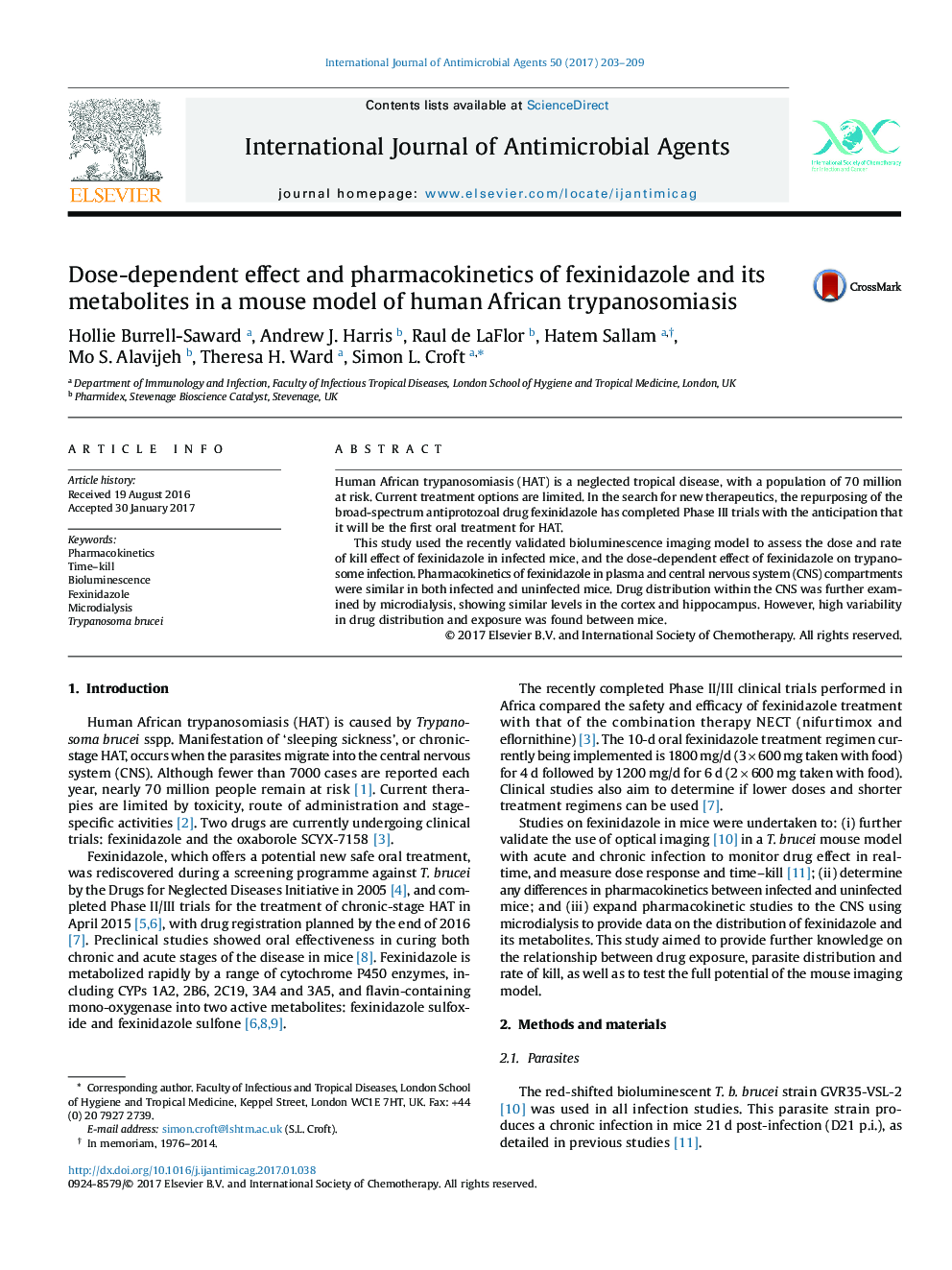| Article ID | Journal | Published Year | Pages | File Type |
|---|---|---|---|---|
| 5666942 | International Journal of Antimicrobial Agents | 2017 | 7 Pages |
â¢Dose dependent effect of fexinidazole against Trypanosoma brucei in a CNS mouse model of infection.â¢Time-kill effect of fexinidazole against Trypanosoma brucei in a CNS mouse model of infection.â¢The first use of microdialysis to measure drug and metabolite levels in the CNS in anti-trypanosomal drug development.
Human African trypanosomiasis (HAT) is a neglected tropical disease, with a population of 70 million at risk. Current treatment options are limited. In the search for new therapeutics, the repurposing of the broad-spectrum antiprotozoal drug fexinidazole has completed Phase III trials with the anticipation that it will be the first oral treatment for HAT.This study used the recently validated bioluminescence imaging model to assess the dose and rate of kill effect of fexinidazole in infected mice, and the dose-dependent effect of fexinidazole on trypanosome infection. Pharmacokinetics of fexinidazole in plasma and central nervous system (CNS) compartments were similar in both infected and uninfected mice. Drug distribution within the CNS was further examined by microdialysis, showing similar levels in the cortex and hippocampus. However, high variability in drug distribution and exposure was found between mice.
